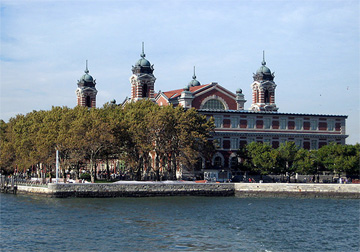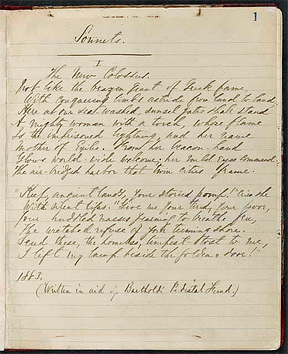If you’ve been following this blog series on illegal immigration, or if you’ve been listening to Christians talk about this issue, then you know there is a wide array of opinions, many of which are contradictory. Consider, for example, the question of whether people who are in this country illegally should be deported. For some Christians, the call to love and respect all people and a commitment to the family means that we must not deport undocumented workers, especially parents of children, who have not committed a crime (apart from being in this country illegally). Other Christians, emphasizing the need to uphold the law and to respect the rightful authority of the government, argue that deportation, however painful it might be, is the only just starting point for those who do not have the legal right to remain in this country. Then there are many Christians who viewpoint is somewhere between these two poles. And this diversity concerns only the matter of deportation. You’d find a similar breadth of opinion about other matters related to the larger issue of illegal immigration.
 Why is there such a vast difference of opinion among Christians concerning illegal immigration? Of course this is nothing new. You’ll find similar diversity among followers of Christ when it comes to many other socio-political issues, including: abortion, taxation, the military, the role of government, etc. Any complex issue, and illegal immigration is surely one of these, inevitably divides the Christian house. (Some people on either side of this debate insist that this issue is not complex. For them, it is simply a matter of legality or justice for the poor or . . . . But denying the complexity of this issue is both intellectually wrong and practically unhelpful. If we aren’t willing to deal with intricacy of this issue, we won’t ever be able to make headway in solving it.) (Photo: Ellis Island in New York, where thousands of immigrants entered the United States)
Why is there such a vast difference of opinion among Christians concerning illegal immigration? Of course this is nothing new. You’ll find similar diversity among followers of Christ when it comes to many other socio-political issues, including: abortion, taxation, the military, the role of government, etc. Any complex issue, and illegal immigration is surely one of these, inevitably divides the Christian house. (Some people on either side of this debate insist that this issue is not complex. For them, it is simply a matter of legality or justice for the poor or . . . . But denying the complexity of this issue is both intellectually wrong and practically unhelpful. If we aren’t willing to deal with intricacy of this issue, we won’t ever be able to make headway in solving it.) (Photo: Ellis Island in New York, where thousands of immigrants entered the United States)
One obvious reason why Christians differ so widely on illegal immigration is that Christians differ widely on theological matters. This is true even among those who affirm basic Christian orthodoxy. It is even truer when you take into account the fact that many who consider themselves Christians do not believe what orthodox Christians have believed throughout the centuries. So, for example, while many Christians would seek to build their understanding of how to deal with illegal immigration on the basis of Scripture, others would see Scripture as one part of this foundation at best, and a erring one at that.
The diversity of Christian opinion about illegal immigration reflects that fact this issue is not merely a matter theology. It involves theology, legal theory, economics, political theory, sociology, and history, just to name a few disciplines. Thus, Christians who agree strongly on the theological statement that we must love our neighbors, including undocumented workers, might disagree on the right of a sovereign nation to establish and defend its borders, or to pursue the economic benefit of the nation even if people right across the border are poor.
Often, what leads Christians to differing conclusions on illegal immigration is a matter of their starting point. If, for example, you start with a deep concern for national security and fear that a porous southern border is an open door for terrorists from around the world, then you’ll usually end up at a different conclusion than if you start with a deep concern for the well-being of families who have undocumented workers as parents.
One of the reasons that people seem to be talking right past each other in this conversation, without being heard and without the slightest chance of actually influencing those with whom they disagree, is that they come from such different places, not just intellectually, but also experientially. If you work in a job, say, in construction, and have lost opportunities for work because of undocumented workers who are willing to work for less, then you’ll tend to be more worried about this problem than the average person and more inclined to be strict in enforcing immigration laws. If, on the other hand, you know illegal immigrants and their families, if you feel the pain that would be caused to innocent children if parents were to be deported, then you’ll be lean toward leniency.
For many in our country, their experience of illegal immigration is not personal, but mediated . . . literally. It comes through the media. But the media does not speak with one voice on this issue. Sometimes, the media exposes the plight of the undocumented, showing their poverty and, in many cases, oppression in their home countries, and the danger and abuse they have experienced in this country. At other times, the media focuses on the ways in which illegal immigrants have hurt this country, fostering violence or putting heavy demands on social welfare. So, your mediated experience of illegal immigration with be shaped differently depending on which radio station you listen to, which magazines you read, and which pundits you trust.
Given what I’ve said here about the intellectual and experiential diversity of Christians, not to mention a variety of other factors, it makes sense that Christians have so little unanimity about illegal immigration and what we should do about it, both as a nation and as a church.
This makes me wonder: Is there a place from which all Christians should start when it comes to this issue (and others like it)? If we want to think about illegal immigration as Christians, and if we want to treat all people, including undocumented workers, as Christians, then where should we start? I’ll wrestle with this question in my next post in this series, which will appear on Monday.

